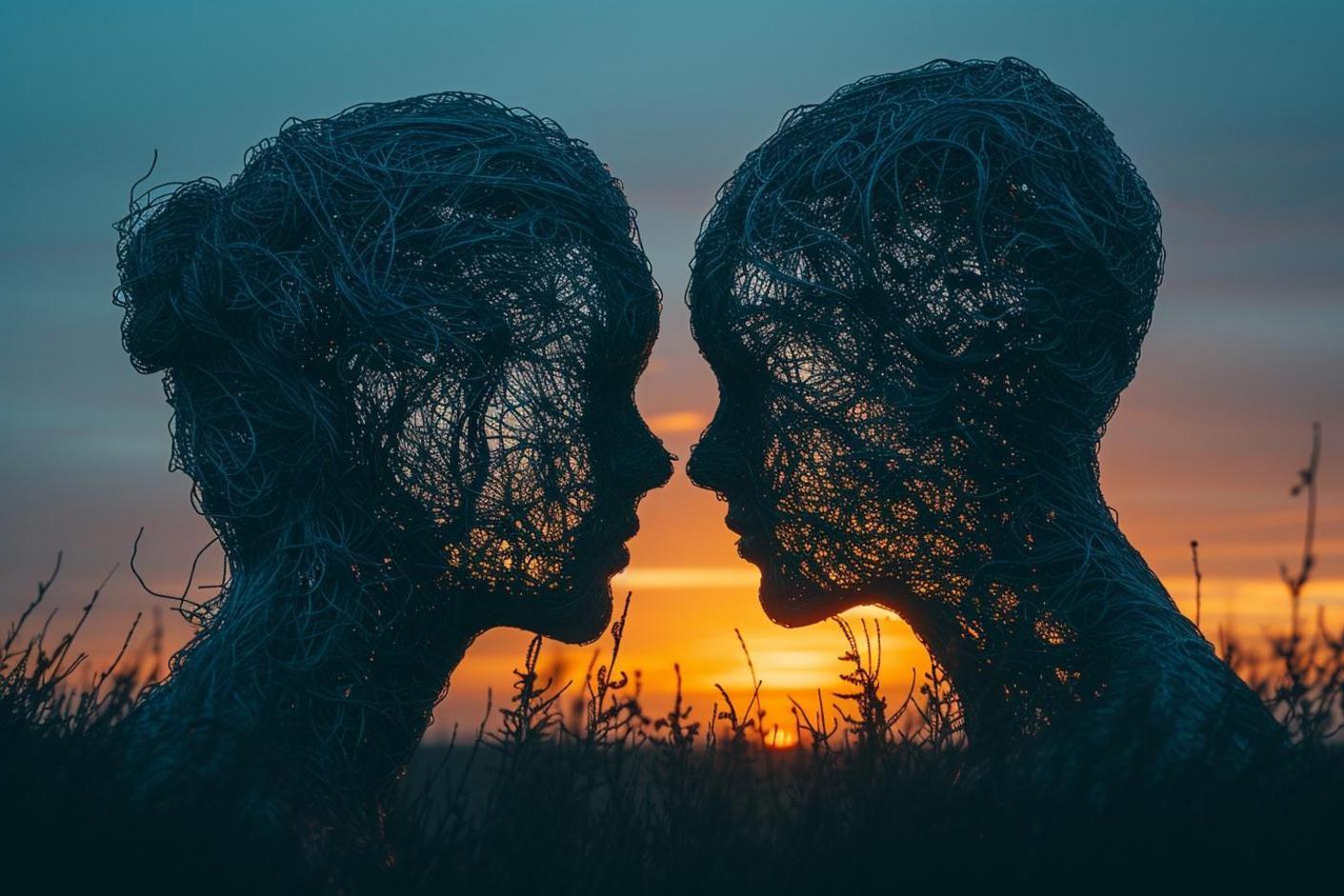It seems we’ve all heard at least once the adage that we should kiss a few frogs before we find our Prince Charming. But what happens when we find ourselves constantly attracted to partners who are far from resembling the royalty in our fairy tales? This attraction to individuals who appear to be anything but good for us raises complex questions about our emotional and psychological well-being. In this article, we will explore the mysteries of these paradoxical attractions and how they shape our relationship quests, sometimes to the detriment of our own expectations.
The heart wants what it wants
It is common to find yourself in a situation where attraction to a person turns out to be double-edged. We fall for someone who apparently doesn’t check all the boxes on our perfect “list” of partners. The irony of the human heart lies in its propensity to be seduced by the mystery, the adventure, or even the challenge that these individuals represent. This phenomenon, far from being trivial, can arise from various psychological factors such as the unconscious desire to repair past injuries or simply the excitement of the unexpected. However, these relationships can become emotional traps, leading to an emotional roller coaster that is often detrimental to our emotional stability.
Beyond the fault
It would be too easy to self-flagellate for these seemingly wrong relationship choices. However, it is essential to understand that our attractions are not always under our control. They are shaped by a complex weave of our personal history, our lived experiences, and sometimes even our emotional deficiencies. Attraction to a person who is not necessarily good for us can also reflect a repetitive pattern, seeking to fill a void or respond to a familiar scenario, even if the latter is painful. Awareness of these mechanisms can be the first step towards liberation from these destructive cycles.
Influence versus control
We live in a world where the illusion of control over our environment can sometimes lead us astray in our interpersonal relationships. The truth is, we can propose, interact and influence, but never control the feelings or actions of others. This realization can be both liberating and frustrating. Understanding that we have an influence on our own life path, without being able to direct that of others, invites us to a form of letting go and personal responsibility for the choices we make.
Openness to possibilities
Giving someone a chance means above all giving yourself the opportunity to discover different facets of love and affection. This act of openness can lead to rich lessons about ourselves and what we truly value in a partner. Giving a chance to people who seem interested in us, even if they do not match our initial criteria, can be an opportunity to develop a relationship based on deeper foundations and authentic than simple physical attraction or social status.
Rationalization and diversity
Our love life should not be an exercise in rationalization where only options that strictly match our desires are considered. Love and attraction are often unpredictable, and it is in this diversity of experiences that sometimes lies the key to a fulfilling relationship. Breaking away from biases and rigid expectations may well open the door to richer, more surprising human connections.
9 methods to channel your intuition when making crucial decisions
Review expectations
When we look at our expectations of love, we may be surprised by their strictness or their lack of realistic basis. Reconsider what we expect of our partners, it is not lowering our standards, but rather refining our understanding of what really contributes to happiness in a relationship. Appreciating the people around us for who they are, and not for who we wish they were, offers us a chance to establish authentic and lasting connections.
In short, attraction to people who are not ideal for us can serve as a catalyst for deep introspection about our desires, expectations, and how we interact with the world. It is by embracing this complexity, recognizing our patterns, and being open to the lessons of each relationship that we can hope to build healthier, more fulfilling connections.

